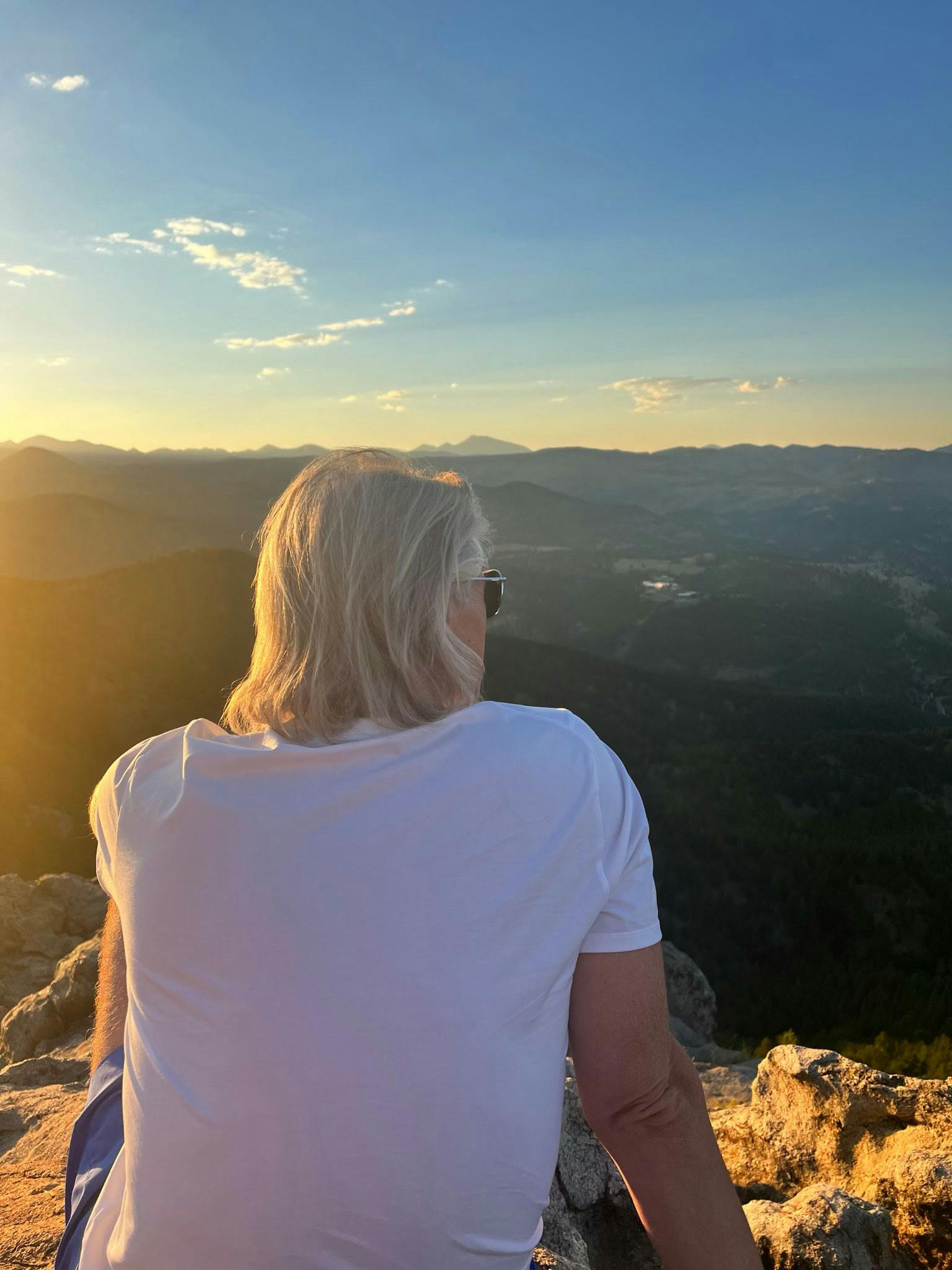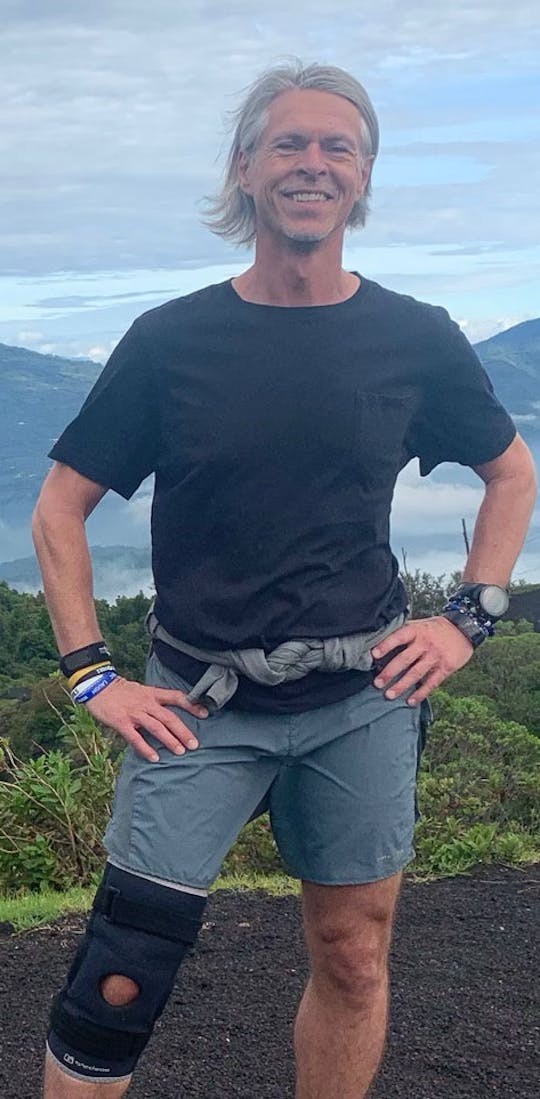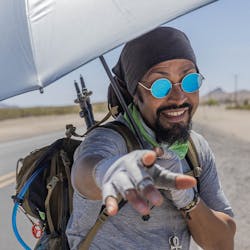I wasn't familiar with Buddy Teaster and Soles4Souls before this interview,
but the little I knew gave me a sense that our conversation would be engaging. In the initial moments of our chat, I felt a connection with Buddy. He's not only a skilled conversationalist but also a genuinely kind person. The impactful work that Soles4Souls is doing for our planet is truly commendable. But you don't have to just take my word for it – here's my interview with the President and CEO of Soles4Souls.
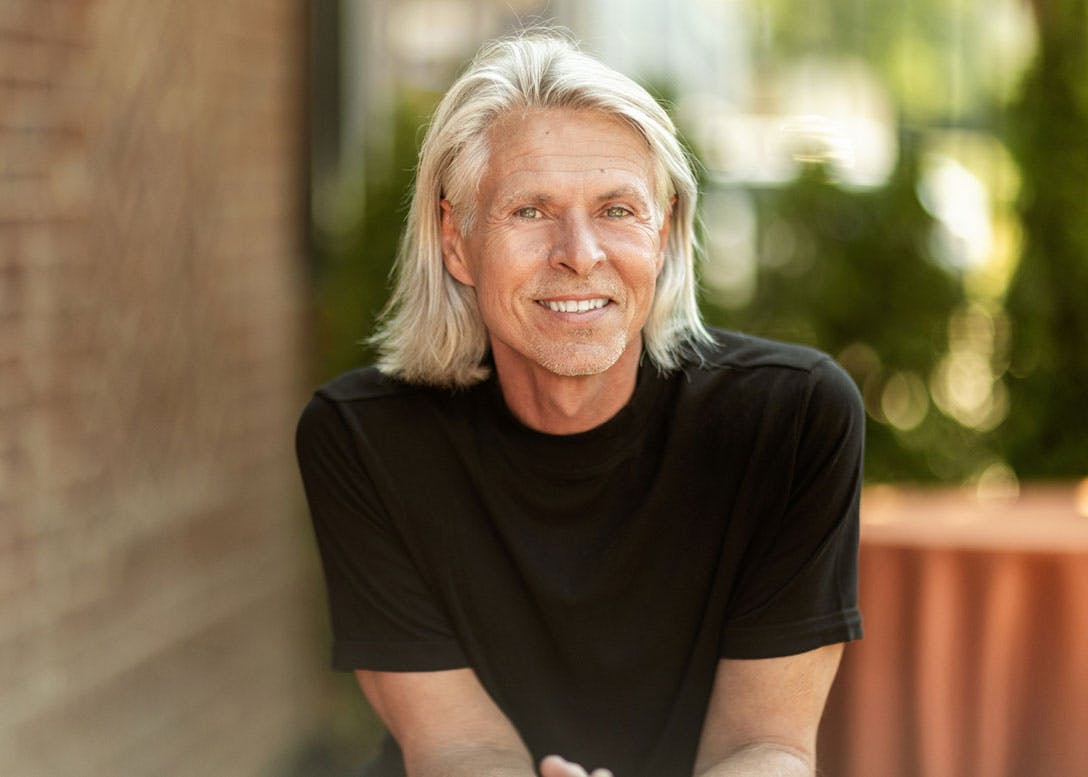
Buddy, let's start with a little bit about yourself and what is Soles4Souls?
Sure. So, I've been the CEO here (Soles4Souls) for 11 years in October. It's been the best 11 years of my life professionally. I still feel every day like, how do I get to do this? That's a great thing. I know that doesn't happen all the time, so I feel fortunate about that. I guess there are lots of ways that people say this, but I feel like everything I've done before this, kind of led me to here. I feel all those experiences I get to bring to bear, and I would say, most of my professional life has been between for-profit and not-for-profit.
I worked in a terrific membership organization called YPO, Young Presidents’ Organization. I worked there three different times, and in between I did for-profit things mostly, around sort of technology, marketing, and education. In 2009, I went into business with a guy I knew from YPO, and that business sold ads on grocery carts. It couldn't be any further from what I'm doing right now or anything else I've ever done. I was living in Dallas, the business was in Ventura, California. Jeffrey, the guy who owned the business said, “Hey it's time to move,” and I didn't feel like it was the right thing for lots of reasons. So, I felt like, okay I'm going to have to pick between not-for-profit and for-profit, but I can't keep going back and forth between the two. After a lot of talk with my wife, I was like, I think the not-for-profit route is for me. My hand was kind of up, and Soles4Souls was looking for a CEO. It turns out the timing was about the same and at that moment I sort of connected with them. I sat down and talked with the board members. It was like all the for-profit stuff, and all the not-for-profit stuff totally intersected. So that's a little bit about my journey to souls for souls.
What we do now, I like to think about it in terms of creating opportunity for people. Part of that, we collect new and used shoes, and clothes. Some of that, we sell to people in the developing world. We call that our 4Opportunity program. I'm happy to talk about that because I think it's the best of business, the best of mission, and the best of not-for-profit. Also, with the new product that we get, we give that away to people in need. It could be people who just need a helping hand, or they're in a bad spot, or could be after natural disaster.
There’s a new program we launched a couple years ago called 4EveryKid that's focused here in the US and it's all about getting a new pair of branded athletic shoes to kids experiencing homelessness in our public schools. We have this way of using stuff that people don't need anymore. It could be shoes that don't fit, could be the wrong color, out of season, or it could be excess inventory in somebody's warehouse. We can turn that into food, housing, shelter for people who are in some cases willing to work hard, and other people just need a break. It's also about opportunity to do something good for the planet.
Shoes are super hard to recycle, so this is a way to keep them in the rotation. It is an opportunity for people to travel with us, to experience the work that we're doing. It's an opportunity for businesses to engage their employees and their customers. It's about how do we serve people for whom shoes and clothes can make a real difference. It turns out that's a lot of people, and a lot of places. It's hard work, there's a lot of logistics. There's a lot of things that get in the way of being able to do that, but the joy and the agency that brings to people's lives. I feel lucky every day to do it.
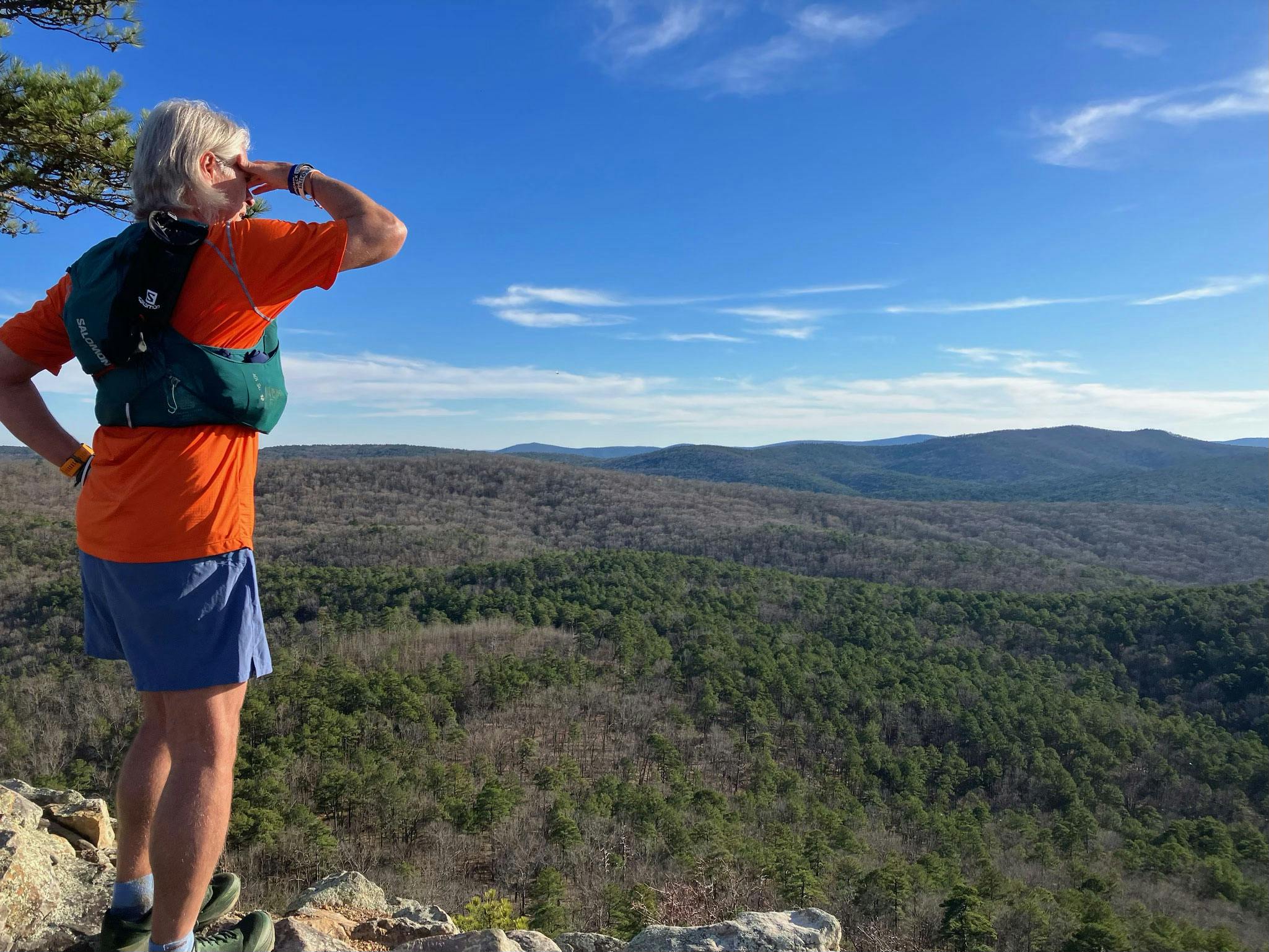
Sounds like most of your donations come from companies, but can someone like me donate and help in some way or another?
Absolutely. So, when I talk about collecting used; this year we'll collect almost 9 million things; shoes, clothing and accessories like belts and handbags, things like that. It's not just shoes. So, after that 8.8 million, let's say somewhere between four and five million will be shoes, and the rest will be apparel accessories. The used stuff does come from people like you, and me. We go into our closets, and some people give it to Goodwill, which is great. Some people take it to thrift stores and sell it. Unfortunately, most of us, most of the time, throw it away. That's the easiest thing to do if you don't feel like the hassle of going with goodwill or whatever.
We have two important partnerships that make it easy for individuals to donate. A partnership with DSW; in all 500 stores, you go and drop off pair of shoes in their stores. It's that easy. They have some other things to make it attractive if you're DSW customer. We're collecting from their customers more than a hundred thousand pairs a month that way.
On the other side, almost all the new stuff comes from companies. It’s excess inventory, it's returns, and it's factory seconds. Stuff that doesn't have, in some cases, real market value, but it's a brand-new product. Companies can get a tax break for that, so there's a tax benefit. Although, I mean, it's not nothing, but companies often aren't driven by that. They really want to do something positive with this stuff. For a long time, we just burned it or put it in the ground. Terrible, but now there are alternatives, and we're one of those. We can come back to the companies, and say this is what you're doing, this is how your donation mattered. It isn't just freeing up your warehouse space or getting it off your books, you really put it to work. Companies, and especially employees, they want to know that about where they work. So, footwear and apparel companies are a huge source of the product donations for us, and we have lots of people who just like the idea, and they say, “can we raise money?” So, you know there's a financial piece, but the product piece comes from individuals like you and me and companies.
We collect shoes and clothes in the US, Canada, and across Europe. We have a warehouse in the Netherlands, where we're doing work, in Singapore and Japan and South Korea. In Europe the laws are changing, companies can't destroy this stuff anymore, so they need some other way to put it back. Even here laws are changing, California's working on some stuff that's kind of like what's going on in Europe. Companies are getting pressured maybe from the legal side, and they're getting a lot of pressure from their employees and their customers saying we got to do something better than just throw this stuff away. All these things are coming together I think in a way that's going to make it more important to have these kinds of outlets.
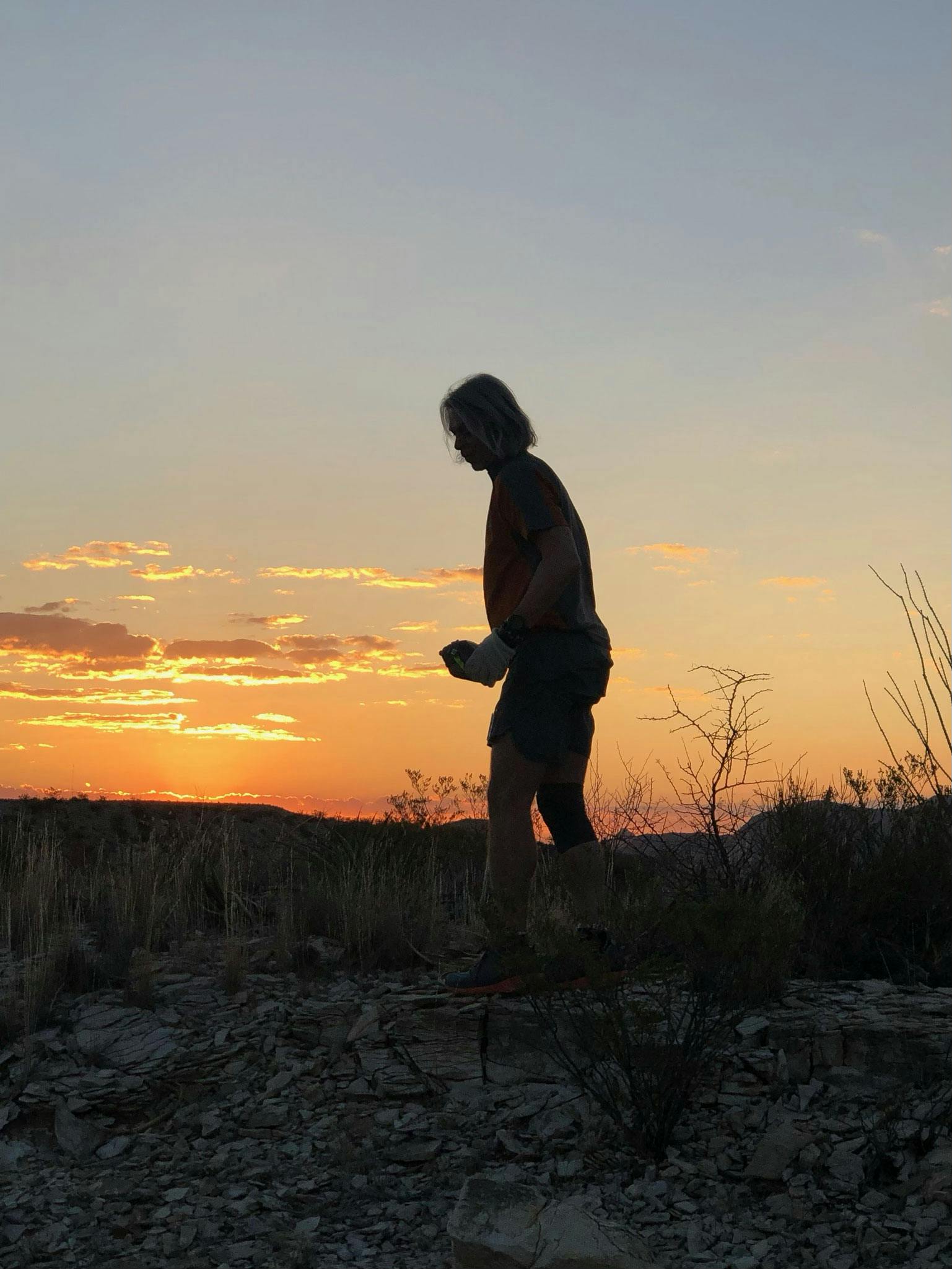
Let’s talk about your book, ‘Shoe Strings’. I love the title, and the subtitle reads, ‘How Your Donated Shoes and Clothes Help People Pull Themselves Out of Poverty’. That’s a strong statement. How does that work?
Derick, this is the part where I feel like my for-profit and not-for-profit experience intersect.
There is a huge global market, has been for a long time. Especially in the developing world, but not only of people selling used stuff; used clothes, used bikes, and used electronics. What we found is, especially women, they work their tails off to try to take care of their families, but often they're at the very bottom of the pyramid. They don't have any market power, they don't have capital, they don't have access to good goods. So, they end up doing the kind of things that are available to them. Could be agriculture, it could be services like cutting hair or salon or tailor, that kind of stuff. What that means is they work super hard to barely hang on, even if they were selling shoes and clothes, which a lot of them are.
I'll just give you an example; let's say that you decide to donate a pair of your hiking boots to Goodwill. It goes to Goodwill, nobody buys it. It goes to the outlet store, nobody buys it. It goes to a broker in Miami, and then it winds up in Haiti. What that means, is the best stuff is already sold earliest. So, by the time it gets to the woman in Haiti, it's already pretty bad product, but every time somebody touches it the price goes up. What she ends up with is crappy stuff, and she can’t make any money.
The market price in Haiti works just like it does here. There's a supply and demand, and the market sort of says these kinds of things are worth 10 bucks a pair. Well, if it cost her $8, she's not making much money. So, we said, if we're going to be in this business, if we're going to really take this sort of market approach to helping people out of poverty, let's cut out the middleman. It's like business 101. We cut out the middleman, who are the brokers in Miami or don't send it to Goodwill, and it's going to go right from your closet to her.
Two things happen; she's immediately got access to better product because we're not for-profit, we're not trying to squeeze all the money out. We want to make sure it gets in her hands instead of her paying $8 for it maybe she's paying $3. If you get $5 in her hand instead of two, just imagine if your income tripled. Your life would be different right? Same for her, and that's true in Haiti or Honduras or Guatemala or Eastern Europe or Philippines. That's the idea when we say it's not a handout.
So that's kind of how we take this idea of helping people to get out of poverty. We use the market, we use people's innate ability, and they could make money if you give them the right opportunity to do that, and that's what we do.
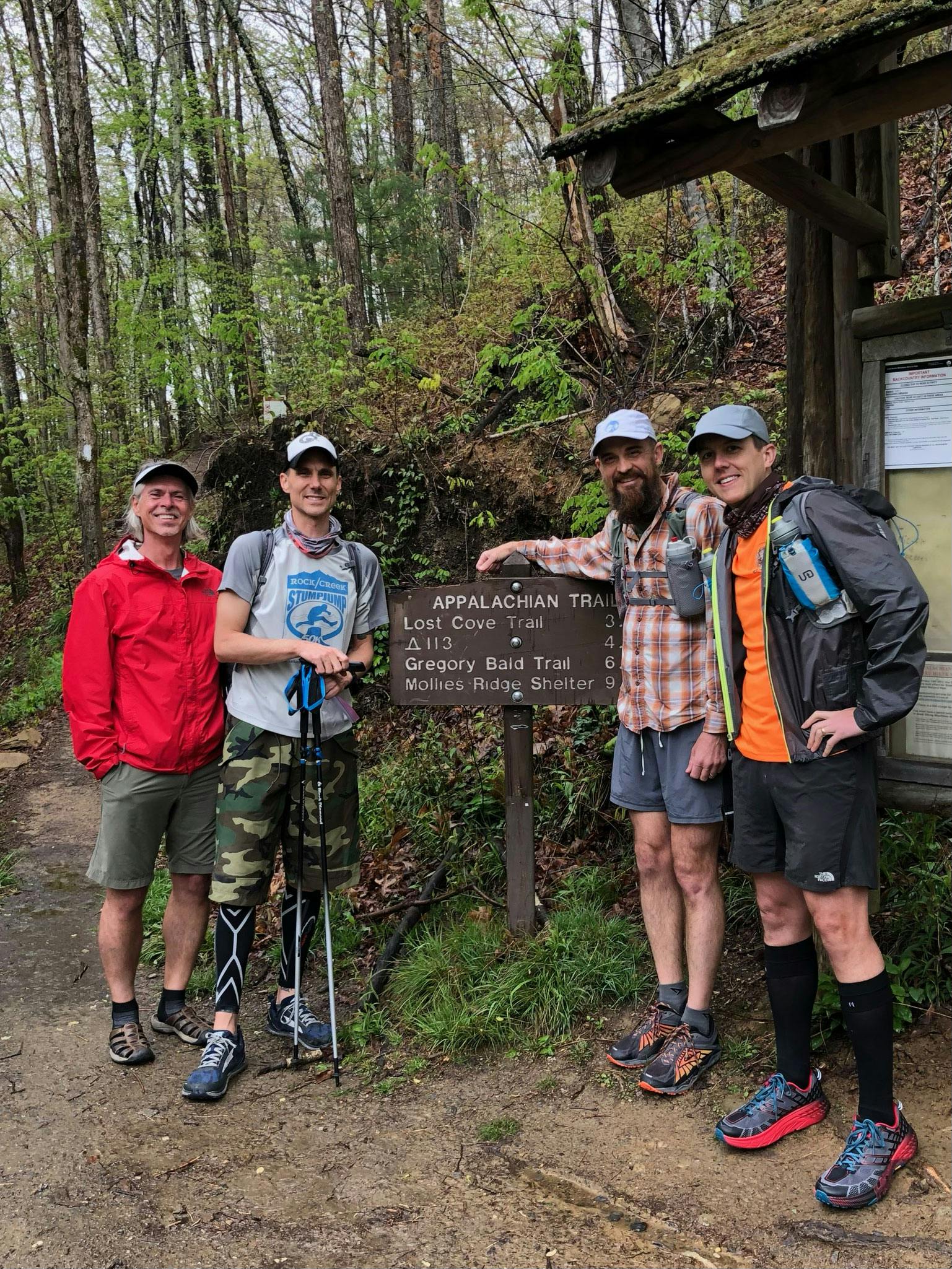
What has been the global impact of Soles4Souls?
I can talk about a couple of things; We have kept more than 80 million things out of landfills. There are people all around this world who have benefited directly from being able to sell shoes and take care of their families. Whether that's on their first home, send their kids to school, and university, get medicine for their kids that they couldn't afford. That happens globally, it’s on a global impact. It's one person and one family, but the thing that I like about Soles4 Souls is it's not a thing that only works in one place. We have found a way to take this idea of creating opportunity for people, and it works globally. We're doing this good thing for the planet, we're helping people after natural disasters and all that sort of stuff. We are creating economic opportunity in places where there's not any and that can happen all around the world.
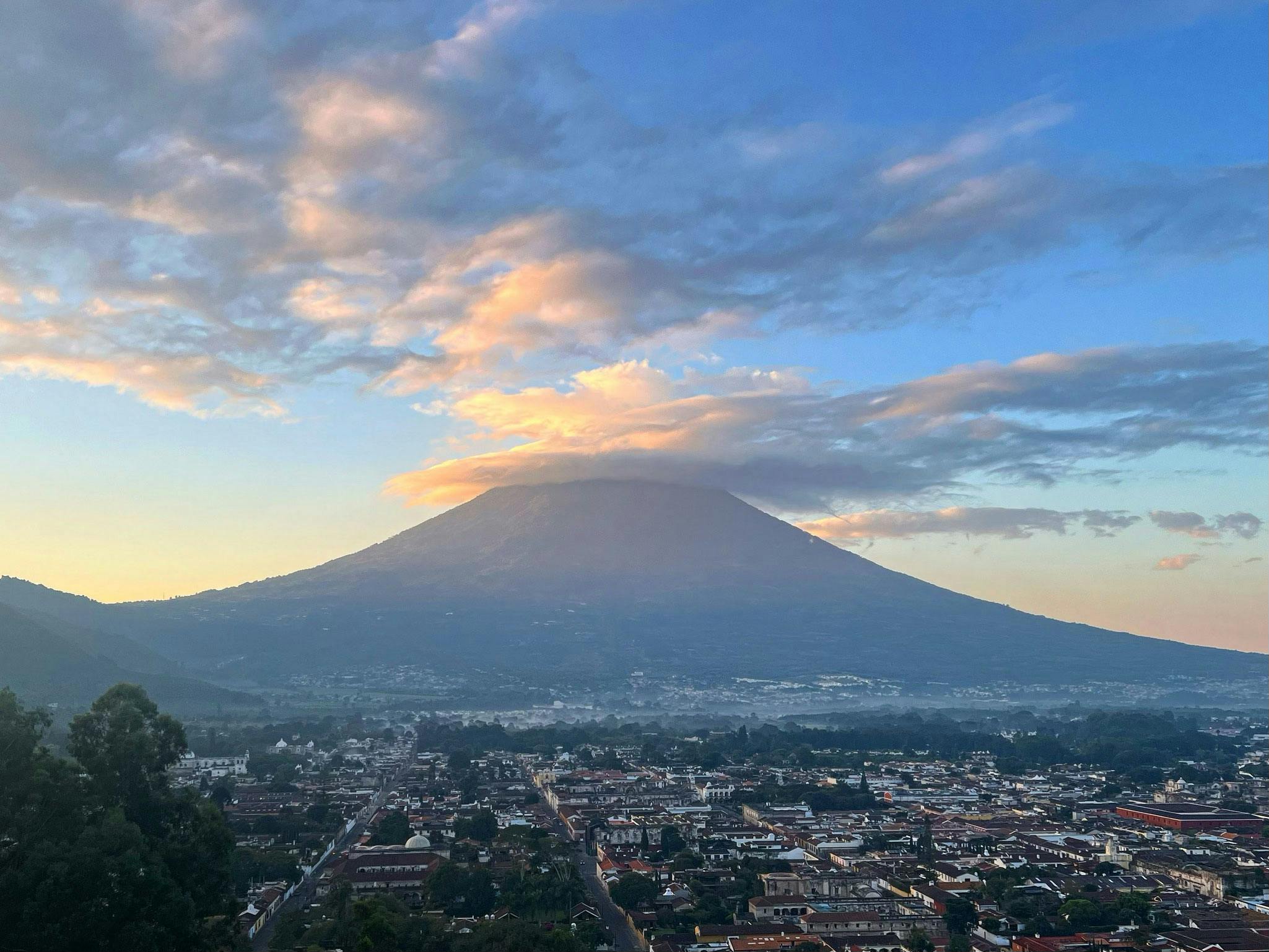
Ok, now for the most important question; would you ever consider doing a thru-hike of a long-distance trail?
Derick, I turned 60 in February, and a friend and I are hiking Kilimanjaro which I'm super pumped about, but I have to say, thru-hiking is on my bucket list.
